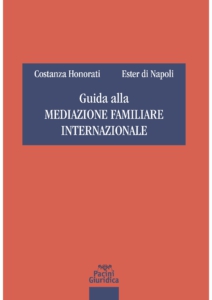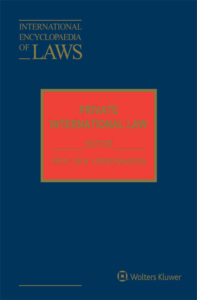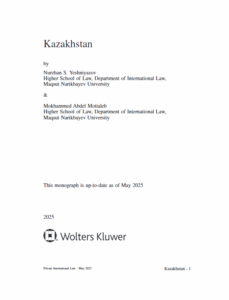On 30 May 2025, the signing of the Convention on the Establishment of the International Organization for Mediation (IOMed) in Hong Kong marked an advancement in the field of international dispute resolution. Attended by representatives from over 85 countries and 20 international organisations – including the United Nations – the event introduced a treaty-based institutional framework dedicated specifically to mediation.
The IOMed Convention – with equally authentic texts in Arabic, Chinese, English, French, Russian, and Spanish – outlines a structured, treaty-based model of mediation whose scope is deliberately broad, encompassing disputes between States, between a State and nationals of other States, as well as disputes between private parties involved in international commercial relationships (Article 24).
A defining feature of the IOMed Convention is its treatment of the legal effect and enforceability of mediated outcomes. Articles 40 and 41 affirm both the binding nature of settlement agreements resulting from IOMed-facilitated mediation and their enforceability within the domestic legal systems of contracting States. This model of consensual yet normatively binding dispute resolution finds a compelling parallel in – and complements – the United Nations Convention on International Settlement Agreements Resulting from Mediation (the Singapore Convention). The Singapore Convention – which, as of 3 July 2025, counts 58 signatories and 18 parties – reinforces party autonomy while requiring the good faith implementation of mediated settlements. Particularly significant is Article 3 of the Convention, which obliges courts in contracting States to recognise international commercial settlement agreements and to enforce them in accordance with domestic procedures, provided the agreement satisfies the Convention’s requirements. While the Singapore Convention offers a uniform and efficient framework for the enforcement and “invocation” (see Art. 3(2)) of international settlement agreements resulting from mediation, the IOMed Convention contributes by establishing the institutional and procedural framework necessary for the conduct of mediation itself. Together, these instruments enhance both the normative foundation and the practical viability of cross-border mediation, thereby reinforcing its legitimacy in complex international commercial contexts.
Beyond its dispute resolution functions, IOMed also assumes a broader mandate to promote mediation (Art. 5). This includes fostering best practices (Art. 5(b)), organising conferences and training initiatives (Art. 5(c)), and implementing targeted capacity-building programmes (Art. 5(d)). A dedicated Mediation Fund (Art. 44), financed through voluntary contributions, is intended to promote equitable access to services, while a Capacity Building Committee (Art. 43) provides strategic oversight in this domain.
Ultimately, the IOMed Convention does not seek to alter the fundamental character of mediation. Rather, it aims to provide a coherent legal and institutional foundation at the international level. By anchoring mediation within a treaty-based framework, the IOMed Convention offers States and other actors a structured yet flexible environment in which to pursue dialogue-based resolution, with greater predictability, neutrality, and institutional support – while preserving the essential consensual nature that distinguishes mediation from adjudication. While its practical impact will depend on how States and other actors engage with its mechanisms over time, the Convention offers a new platform for exploring the potential of mediation in a variety of international contexts.
 In response to the growing complexity of cross-border family disputes – driven by increasing mobility and evolving family configurations – the recently published Guida alla mediazione familiare internazionale in materia di responsabilita genitoriale e sottrazione internazionale di minori, authored by Costanza Honorati and Ester di Napoli (Pacini Editore, 2025; available online in open access, in Italian), offers a rigorous and thematically cohesive guide to the law and practice of cross-border family mediation. Grounded in both European and multilateral legal instruments, the volume brings together doctrinal precision, procedural clarity, and practical insight, establishing itself as an essential reference for legal practitioners, judges, mediators, and scholars navigating the intricate terrain of cross-border family justice. Read more
In response to the growing complexity of cross-border family disputes – driven by increasing mobility and evolving family configurations – the recently published Guida alla mediazione familiare internazionale in materia di responsabilita genitoriale e sottrazione internazionale di minori, authored by Costanza Honorati and Ester di Napoli (Pacini Editore, 2025; available online in open access, in Italian), offers a rigorous and thematically cohesive guide to the law and practice of cross-border family mediation. Grounded in both European and multilateral legal instruments, the volume brings together doctrinal precision, procedural clarity, and practical insight, establishing itself as an essential reference for legal practitioners, judges, mediators, and scholars navigating the intricate terrain of cross-border family justice. Read more


